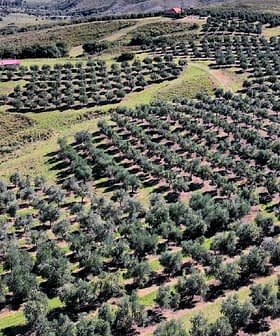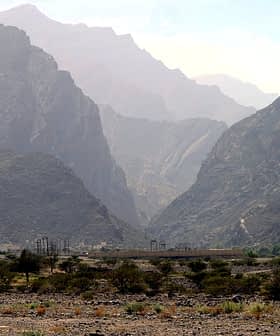Notwithstanding expectations of a record harvest, some farmers in Turkey are struggling under the strain of low olive prices, high production costs and uncertain government policy.
In its initial 2024/25 crop year estimates published in January, the International Olive Council forecasted that Turkey would produce 450,000 metric tons, exceeding the previous record of 421,000 tons in 2022/23 but below the Turkish Olive and Olive Oil Council’s (UZZK) preliminary estimate of 475,000 tons.
Excessive increases in labor wages have significantly raised harvesting costs… If olive oil prices do not exceed 180 lira, producers can’t cover their basic expenses.
Saim Demirbaş, president of the Foça Agricultural Chamber, told local media that olive harvesting is nearly finished, but olive prices have not risen comparably to costs.
“Oil mills are purchasing olives at a price range of 130 to 150 lira (€3.40 to €3.95) [per kilogram],” he said, down from the 295 lira (€9) in the previous crop year.
See Also:Turkey’s Olive Sector Aims for Record $1B in ExportsData from online olive oil trading marketplace Oleista show prices at origin for lampante, virgin and extra virgin olive oil ticked up in the second week of February to €4.53, €5.15 and €6.20 per kilogram, respectively.
However, farmers said these had not offset increasing energy, fertilizer and pesticide prices and rising labor costs.
“This year, olive producers are experiencing significant hardship,” Demirbaş confirmed. “Costs have increased by 50 percent between last year and this year.”
“Agricultural labor is becoming less attractive as a profession due to economic conditions,” he added. “Excessive increases in labor wages have significantly raised harvesting costs.”
Demirbaş calculated that it costs olive farmers about 180 lira (€4.75) to harvest the average six kilograms of olives needed to produce one liter of olive oil.
“If olive oil prices do not exceed 180 lira, producers can’t cover their basic expenses,” he said.
Producers, bottlers and exporters are also wary of how changing government policy might affect their ability to ship their product abroad.
An export ban imposed by the government in July 2023, aimed at stabilizing domestic prices and encouraging the export of individually packaged olive oil, has resulted in significant olive oil stocks.
Although the ban was lifted in October 2024, producers worry that some extra virgin olive oil may have degraded to a lower quality grade and will, therefore, be less valuable on the export market.
Others are concerned that government policy will change quickly, making long-term planning more challenging. The government has prohibited bulk olive oil exports three times since 2021, with the prohibitions lasting anywhere from six to 14 months.
Halit Uşak, an olive farmer in business for 30 years, told local media the combination of lower prices for olives with higher labor and production input costs has made the business unsustainable.
“The olives collected do not even cover the cost of the worker [wages],” he said. “The state must intervene in this situation as soon as possible and support the producers.”
Ömer Ulaş Kırım, president of the Turkish Chamber of Food Engineers in Izmir, called on the government to consider olive oil production and exports as strategic sectors for the country and provide the necessary support to help them succeed.
“Supporting producers and focusing on branding efforts during this process is of critical importance for the future of the sector,” he said. “This crisis can become an opportunity to strengthen the olive oil sector. However, for this, the voices of producers should be heard more strongly, and sustainable strategies should be developed in the long term.”









